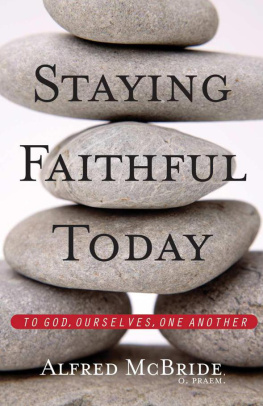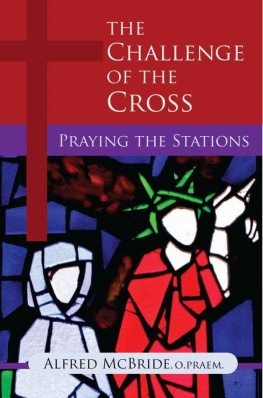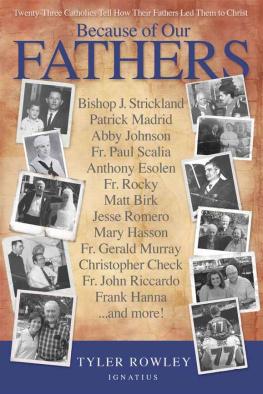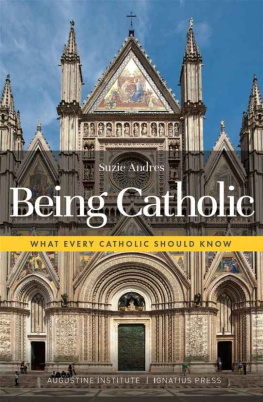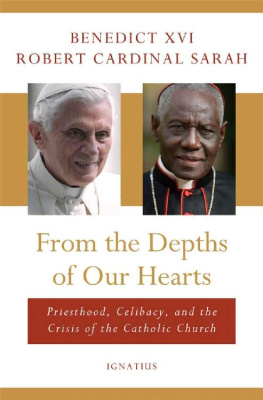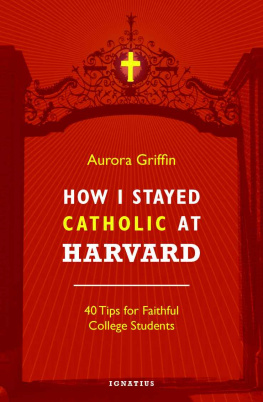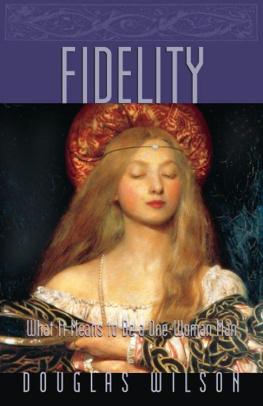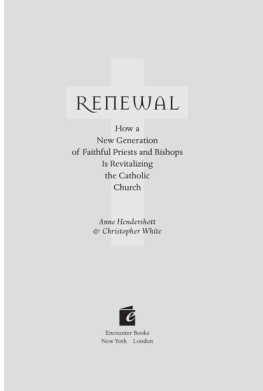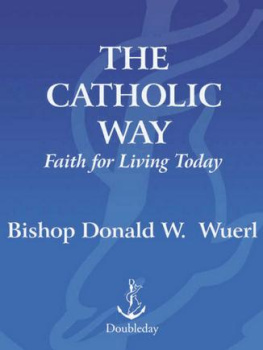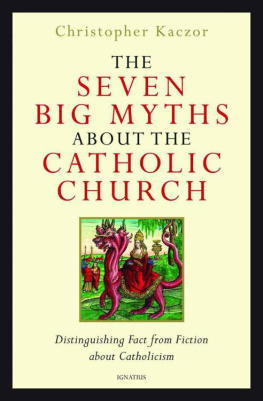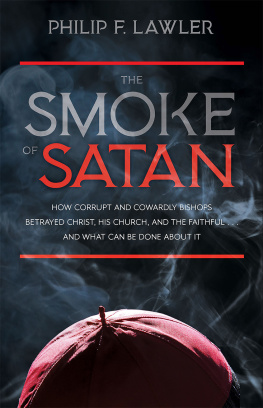INTRODUCTION
When this book first appeared in 1981, the crisis of fidelity in our culture and the church had already begun. Thousands of priests and religious women and men had abandoned their vows, and marriages and families were in crisis. Through it all, I wondered why? I concluded that our church and culture had not reached the tipping point in which they were able to realize the breakdown of fidelity to God, self, friendships, country, marriage, and celibacy. Of course, we were just singing in the rain or, more ominously, whistling in the dark. Our capacity for denial and delusion regarding our most precious values wasand is still todayunnerving.
Since then, our church has suffered the priest sex abuse tragedy and a scandalous failure to be celibate. And the churchs people have lost respect for authority, adopted a reckless disregard for the sanctity of marriage, and become addicted to the latest fads, including but not limited to drugs and alcohol. I believe the crisis of fidelity has now reached dangerous levels both for the church and its people, and I am convinced that the point I made in the first edition of Staying Faithful is now more relevant than ever. That is why I have titled this edition Staying Faithful Today.
Facing the loss of fidelity to the basic principles of life, major religious leaders have developed the Manhattan Declaration: A Call of Christian Conscience. In announcing this call, Archbishop Timothy Dolan said that the deepest vocation crisis is marital fidelity and that if successful and holy unions of marriage and the family had flourished, there would be many more seminarians and priests than we have today. The Manhattan Declaration summarizes its goals and purpose on its website as follows:
Because the sanctity of human life, the dignity of marriage as a union of husband and wife, and the freedom of conscience and religion are foundational principles of justice and the common good, we are compelled by our Christian faith to speak and act in their defense. In this declaration we affirm: 1) the profound, inherent, and equal dignity of every human being as a creature fashioned in the very image of God, possessing inherent rights of equal dignity and life; 2) marriage as a conjugal union of man and woman, ordained by God from the creation, and historically understood by believers and non-believers alike, to be the most basic institution in society and; 3) religious liberty, which is grounded in the character of God, the example of Christ, and the inherent freedom and dignity of human beings created in the divine image.1
I like both the content of this declaration and the strong language in which it is written. It is unambiguous, clear, forceful, and visionary. For too long we have appeared weak regarding the issues here. Its not that we didnt keep the issues on the books, but our public commitment seemed shrouded in the fear of speaking up and being prophetic in public discourse. Our peculiar silence in recent decades is now resulting in the potential ruin of our most cherished values and institutions.
Some prominent columnists are addressing this very issue. New York Times writer David Brooks, in his column The Broken Society in March 2010, quotes prominent British writer Philip Blond:
Over the past generation we have witnessed two revolutions, both of which liberated the individual and decimated local associations. First, there was a revolution from the left: a cultural revolution that displaced traditional manners and mores; a legal revolution that emphasized individual rights instead of responsibilities; and a welfare revolution in which social workers displaced mutual aid societies and self-organized associations.2
The sixth commandment says, You shall not commit adultery. Stated positively, the commandment means, You shall practice fidelity in your marriages. The high-profile adulteries among our political leaders, sports figures, and media celebrities contain a consistent picture of the stalwart wife trying to appear courageous by the side of her unfaithful spouse. I see them carrying the shame, pain, and hurt of the dream of marital love shattered. To think that a certain prominent presidential candidate betrayed his wife and continued to lie about it while she was suffering cancer stuns the conscience and arouses anger. To watch a United States governor admit, while holding the hand of his pained wife at a press conference, that he paid thousands of dollars for a few hours with a prostitute confounds both reason and common sense. It is clear evidence of the careless dismissal of marriage and the promises to be faithful in sickness and in health until death.
This case was barely through the news cycle when another prominent leader in our government traveled thousands of miles to South America to break his marital bond. Not only did his wife mourn with remembrances of their early love and the sacrifices she made for his career, but moreover, she mourned for her four children, who were left confused, embarrassed, and brokenhearted as well.
Infidelitiesamong the rich and poor, the famous and the infamous, the government class and the Hollywood celebrities and the everyday middle-class familiesare painfully well known. Finally, and even more tragic, are the infidelities of priest sex-abusers whose sins have affected the faith of thousands of Catholics, the lives of the victims, and the credibility of the church.when a moderate commentator raises the idea that Christianity would be good for the public sinners, the culture arises to shut the mouth of such a dissenter. Questioning this strange reaction, New York Times columnist Ross Douthat lamented the notion that the public square is no place to champion religion. In his column, Lets Talk About Faith, he defended Fox News commentator Brit Humes right to give advice to embattled champion golfer Tiger Woods, who was facing a marital scandal. Douthat quotes Hume, who suggested that Woods should consider converting to Christianity, saying that, Hes said to be a Buddhist. I dont think that faith offers the kind of forgiveness and redemption that is offered by the Christian faith. Douthat claimed that a number of people declared that this comment was the most outrageous thing they ever heard, and he went on to say, Humes words were replayed by Jon Stewart on the Daily Show, to shocked laughter from the audience. They were denounced across the blogosphere as evidence of chauvinism, bigotry and gross stupidity. MSNBCs Keith Olbermann claimed, absurdly, that Hume had tried to threaten Tiger Woods into becoming a Christian. Without agreeing with what Hume said, Douthat argued simply that, The idea that religion is too mysterious, too complicated or too personal to be debated on cable television just ensures that it will never be debated at all.3

